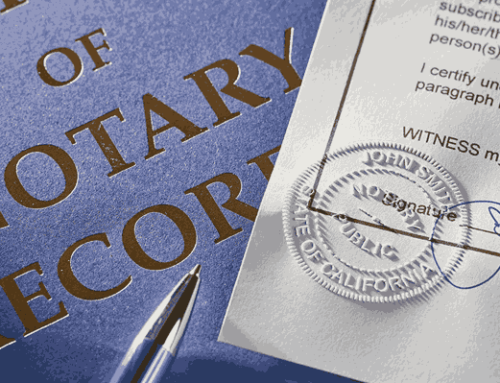In today’s fast-paced business environment, efficient procurement processes are crucial for corporate legal teams and law firms. Streamlining the procurement process not only saves time and resources but also enhances the quality of services obtained. Requests for Proposals (RFPs) have emerged as a powerful tool for achieving these objectives.
Additionally, another important aspect of the procurement process is the Request for Information (RFI). An RFI serves as a preliminary step before issuing an RFP and plays a crucial role in gathering information and qualifying potential vendors or law firms.
An RFI allows organizations to collect detailed information about vendors’ capabilities, expertise, experience, and offerings without soliciting specific pricing or proposals. It helps in evaluating the suitability of vendors based on their qualifications, understanding their approach to addressing the organization’s needs, and assessing their compatibility with the project.
Through the RFI, organizations can gather insights into vendors’ past performance, their understanding of the industry and regulatory requirements, technological capabilities, financial stability, and any unique differentiators that set them apart from their competitors.
What is a request for a proposal?
An RFP is a formal document used by organizations and companies to invite vendors for corporate projects. They do so to submit proposals for legal services. It helps gather information and evaluate service providers.
Legal RFPs enable organizations to express their needs and requirements to potential service providers. These documents detail the work scope, specific legal services needed, project timelines, evaluation criteria, and proposal submission instructions. The RFP may also include information about the organization, its background, and the desired qualifications of the service provider.
Legal RFPs help evaluate and select service providers based on expertise, experience, geographic reach, pricing, and compliance. This process enables organizations to compare proposals and choose the most suitable vendor or law firm. In this blog post, we’ll discuss the benefits of RFPs for legal teams and firms for effective procurement.
Benefits of RFPs for Legal Teams and Corporate Departments:

Enhancing Efficiency
RFPs play a vital role in streamlining the procurement process for corporate legal teams and law firms. By clearly articulating their requirements and expectations, legal teams can efficiently communicate their needs to potential vendors or law firms.
RFPs provide a structured framework that helps organizations evaluate and compare multiple proposals effectively. This process eliminates the need for lengthy discussions and negotiations, which saves time.
Ensuring Quality and Compliance
The use of RFPs ensures that all potential vendors adhere to specific criteria set by the corporate legal team. These criteria may include legal expertise, relevant experience, service delivery capabilities, pricing models, and compliance with regulatory requirements.
Legal teams use detailed information from RFPs to evaluate and select vendors. This systematic approach minimizes the risk of engaging with unsuitable service providers and ensures compliance with legal and ethical standards.
Promoting Transparency
RFPs foster transparency in the procurement process. All vendors or law firms participating in the RFP receive the same set of information, instructions, and evaluation criteria. This transparency eliminates any potential bias or favoritism in the selection process.
RFPs promote fair competition and ensure the selection of the most suitable vendor or law firm based on specific organizational requirements.
Encouraging Innovation and Collaboration
RFPs provide an opportunity for legal teams to explore innovative solutions and engage with forward-thinking law firms. RFPs promote fair competition and ensure the selection of the most suitable vendor on merit and specific organizational requirements.
Cost Optimization
Cost-effectiveness is a key consideration for any procurement process. RFPs enable legal teams to evaluate multiple vendors or law firms based on pricing models, fee structures, and value-added services. By comparing proposals, legal teams can select a cost-effective option without compromising quality. The competitive nature of the RFP process encourages vendors to offer competitive pricing, resulting in cost savings for organizations.
Challenges Legal Teams Face while Procuring RFPs:
RFPs can bring many benefits to legal teams during the procurement process. However, there are also some challenges that they encounter.
Here are some common challenges faced by legal teams while procuring RFPs:
Time and Resource Constraints: Developing and managing an RFP requires significant time and resources. Legal teams may encounter challenges in allocating resources to draft RFPs, review proposals and negotiate contracts while handling daily responsibilities.
Complex Legal Requirements: Legal teams often need to ensure that the RFP includes all necessary legal requirements and complies with relevant regulations and policies. This can be challenging, especially in highly regulated industries where specific. Legal teams must include legal clauses and terms in the RFP.
Balancing Standardization and Flexibility: RFPs aim to provide standardized processes and evaluation criteria. Legal teams must find a balance between standardization and flexibility to address the unique requirements of the organization. This challenge arises from the need to ensure fairness and consistency while accommodating variations in vendors’ capabilities.
Vendor Qualification and Evaluation: Assessing vendor qualifications and evaluating proposals can be time-consuming and complex. Legal teams may encounter challenges in objectively evaluating vendors and conducting thorough due diligence. And selecting the most suitable vendor for their organization’s needs.
Negotiation and Contracting: When selecting a vendor, legal teams are responsible for negotiating and finalizing contracts. This can involve complex negotiations over terms and conditions, pricing, intellectual property rights, data protection, and other legal aspects. Balancing the organization’s interests while maintaining a collaborative relationship with the vendor can be challenging.
Compliance and Risk Management: Legal teams play a crucial role in ensuring compliance with legal and regulatory requirements during the procurement process. They need to assess and mitigate risks associated with vendor selection, contract negotiation, and data privacy, among others. Managing and addressing these risks effectively can be a challenge, particularly when dealing with numerous vendors or complex contractual arrangements.
Stakeholder Alignment: Legal teams must work closely with various stakeholders within the organization, including procurement, finance, IT, and business units. Ensuring alignment and collaboration among these stakeholders can be challenging, as different perspectives and priorities may need to be reconciled.
Evolving Technology and Practices: Legal teams may encounter challenges in staying updated with evolving technology and procurement practices. However, incorporating new technologies into the RFP process needs adapting to digital platforms, automated evaluation tools, and other emerging technologies.
To overcome these challenges, legal teams need strong project management, effective communication, collaboration, and industry knowledge.
By using RFPs as a procurement tool, legal teams can strategically choose vendors or law firms. Also meet their specific needs, also contributing to the overall success of the organization.
How to procure the best RFP?

Define your needs: Clearly articulate the specific legal services and requirements your organization needs.
Develop evaluation criteria: Determine the key factors that are important for evaluating vendors, such as legal expertise, pricing models, and compliance with regulations.
Draft a comprehensive RFP document: Create a detailed RFP document that includes the scope of work, project timelines, and evaluation criteria. Also, instructions for vendors to submit their proposals.
Identify potential vendors: Research and identify potential vendors or law firms that align with your organization’s needs and requirements.
Distribute the RFP: Share the RFP document with the selected vendors, allowing them sufficient time to prepare and submit their proposals.
Evaluate proposals: Review the received proposals based on the predefined evaluation criteria. Assess each proposal’s strengths, weaknesses, and alignment with your organization’s needs.
Conduct due diligence: Conduct thorough due diligence on the shortlisted vendors, which may include checking references. Also reviewing past work, and evaluating their financial stability.
Negotiate contracts: Engage in negotiations with the preferred vendor to finalize the terms, conditions, and pricing of the legal services.
Select the best vendor: Based on the evaluation, due diligence, and negotiation process, choose the vendor that best meets your organization’s needs and requirements.
Monitor and manage the engagement: While selecting the vendor, establish clear communication channels, and monitor the progress of the engagement. And regularly evaluate their performance to ensure ongoing success.
By following these steps, you can effectively procure the best RFP for your organization’s legal needs.
In an increasingly competitive business landscape, streamlining procurement processes is essential for corporate legal teams and law firms. Request for Proposals (RFPs) offers a structured and efficient approach to procuring legal services. By leveraging RFP benefits, organizations can enhance efficiency, ensure quality and compliance, collaboration, and optimize costs.





